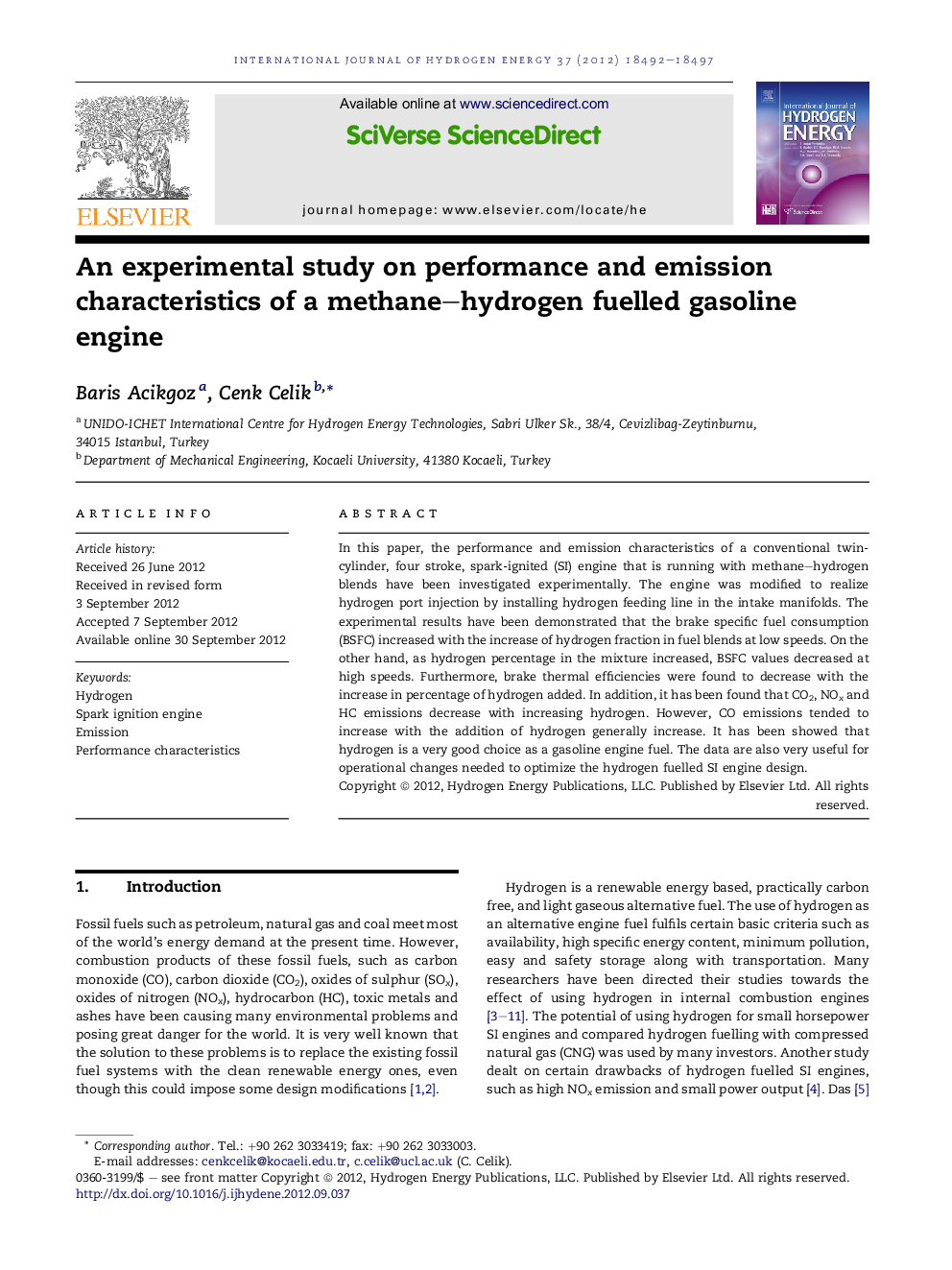| Article ID | Journal | Published Year | Pages | File Type |
|---|---|---|---|---|
| 1278367 | International Journal of Hydrogen Energy | 2012 | 6 Pages |
In this paper, the performance and emission characteristics of a conventional twin-cylinder, four stroke, spark-ignited (SI) engine that is running with methane–hydrogen blends have been investigated experimentally. The engine was modified to realize hydrogen port injection by installing hydrogen feeding line in the intake manifolds. The experimental results have been demonstrated that the brake specific fuel consumption (BSFC) increased with the increase of hydrogen fraction in fuel blends at low speeds. On the other hand, as hydrogen percentage in the mixture increased, BSFC values decreased at high speeds. Furthermore, brake thermal efficiencies were found to decrease with the increase in percentage of hydrogen added. In addition, it has been found that CO2, NOx and HC emissions decrease with increasing hydrogen. However, CO emissions tended to increase with the addition of hydrogen generally increase. It has been showed that hydrogen is a very good choice as a gasoline engine fuel. The data are also very useful for operational changes needed to optimize the hydrogen fuelled SI engine design.
► The performance and emission characteristics was investigated. ► A conventional twin-cylinder, four stroke, spark-ignited (SI) engine was used. ► The engine was modified by installing hydrogen feeding line. ► CO2 and HC emissions were reduced with hydrogen addition.
